Americans buy millions of new guitars every year.[1] Many of these are “entry-level” guitars intended for those trying to learn a new instrument. Yet somewhere in the range of 90% of new guitar players quit trying within the first year. When the electric guitar first became popular in the 1950s and 1960s, there were few ways to accelerate the learning curve. By the late 1990s, along with the advent of the internet, a tool for learning guitar and how to play popular songs reached the masses: guitar tablature or “tab” for short. The concept of tablature was not new, but the ability for an individual to read and acquire tabs through the internet was groundbreaking.
Guitar tab is essentially a shorthand method for transcribing the specific notes and chords of a song in a format that mimics the finger positions on a guitar’s fretboard. Instead of having to learn to read and translate formal sheet music, tablature is simplified. Each note is represented by a number that corresponds to a particular string and location on the fretboard. The beauty of guitar tab is that most anyone who plays guitar can transcribe a song into this format and share it with others as a teaching tool.
Naturally, it did not take long for the internet to respond in kind. Sites with collections of thousands of tabs populated the web seemingly overnight. To the surprise of no one, this also caught the attention of the music publishing industry. And their lawyers. Copyright law concerns threatened to shut down online guitar tab publishing in its entirety.
My question today is simple: while guitar tablature is likely a “derivative work” restricted by copyright law – should it be? Or should there be some sort of expressed fair use exception for guitar tablature? And if not, why not?
Copyright Law basics
United States copyright laws address all “original works of authorship.”[2] It then provides certain exclusive rights to the authors of these works.[3] Among these rights are the following:
(1) to reproduce the copyrighted work in copies or phonorecords;
(2) to prepare derivative works based upon the copyrighted work;
(3) to distribute copies or phonorecords of the copyrighted work to the public by sale or other transfer of ownership, or by rental, lease, or lending;
(4) in the case of literary, musical, dramatic, and choreographic works, pantomimes, and motion pictures and other audiovisual works, to perform the copyrighted work publicly;
(5) in the case of literary, musical, dramatic, and choreographic works, pantomimes, and pictorial, graphic, or sculptural works, including the individual images of a motion picture or other audiovisual work, to display the copyrighted work publicly; and
(6) in the case of sound recordings, to perform the copyrighted work publicly by means of a digital audio transmission.
The particular “exclusive right” at issue here is the second one: the exclusive right to prepare derivative works. What is a derivative work? It is actually a defined term in the statute:
A “derivative work” is a work based upon one or more preexisting works, such as a translation, musical arrangement, dramatization, fictionalization, motion picture version, sound recording, art reproduction, abridgment, condensation, or any other form in which a work may be recast, transformed, or adapted. A work consisting of editorial revisions, annotations, elaborations, or other modifications which, as a whole, represent an original work of authorship, is a “derivative work.”[4]
What you may not realize is that most music is captured by two separate copyrights. The first copyright is the recorded song that we are all familiar with. This is the “sound recording” specifically cited in the definition above. But there is also a separate, independent copyright for the musical composition. This is known as the “songwriting copyright.” Before the popularity of guitar tabs, most musical compositions were “fixed” or transcribed as sheet music.
The sheet music industry is massive. It is a billion dollar industry. This money is generated through licensing of the songwriting copyright by the songwriter or owner to an entity that publishes the underlying sheet music. This is because sheet music is considered a derivative work of the author’s songwriting copyright. This is how songwriters and the record industry use the exclusive right to authorize derivative works for financial benefits. The popularity of guitar tablature and guitar tab indexes and databases on the internet threatened this industry.
Speaking from experience, tablature is usually created by an individual who is likely not the author of the song itself. This individual transcribes (often by ear) the notes and progressions of a song into the standardized tab format. The goal is to be as accurate as possible, though a quick perusal of most tabs currently online will uncover that the majority are not anywhere near accurate. Nevertheless, even if a hypothetical individual did not intend to violate or infringe on any copyright laws – these tabs are potentially unauthorized derivative works of the original sound recording. This presents us with the current dilemma.
The argument for tabs being “derivative works” is that they are direct transcriptions of a copyrighted work (be it the sound recording or the songwriting copyright). The argument against tabs being derivative works is generally that they are merely informational – they do not transform or recast the copyrighted work as something new. This argument would cast guitar tabs as merely an evaluation or critique of the copyrighted work (i.e., the song itself).
Personally, I have a hard time viewing tabs as non-derivative works. When I create my own tabs, I am writing it specifically to transcribe a song as accurately as possible and to transform it into a language that is readable to someone who understands how to read guitar tab. I am not doing it to evaluate, categorize, or critique the song itself. I write tabs so that I can help myself and others re-create a particular song note-for-note and subsequently be able play that a cover version of it. That is my purpose. To me that falls on the “derivative work” side of the scale.
Accordingly, working with the assumption that guitar tabs are derivative works, the next step is to determine whether fair use applies as a wholesale exception to infringement.
Fair Use in general
The exclusive rights in a copyright are not absolute. United States copyright law provides for the “fair use” of copyrights in certain fact-dependent circumstances.[5] In particular, the “fair use” limitations on exclusive rights are allowed “for purposes such as criticism, comment, news reporting, teaching (including multiple copies for classroom use), scholarship, or research.”
Since any claim of fair use is heavily fact-dependent, the statute provides a series of factors to consider in such an analysis. Moreover, just because someone claims fair use on the grounds of “teaching” or “research” does not automatically overcome a copyright author’s otherwise exclusive rights. Such considerations are weighed and balanced through the four fair use factors. These factors are enumerated as follows:
(1) the purpose and character of the use, including whether such use is of a commercial nature or is for nonprofit educational purposes;
(2) the nature of the copyrighted work;
(3) the amount and substantiality of the portion used in relation to the copyrighted work as a whole; and
(4) the effect of the use upon the potential market for or value of the copyrighted work.[6]
This is where the fight is. On one side, you have guitar tab sites and their users asserting teaching, scholarship, and/or research reasons as grounds for fair use. These are entirely reasonable claims. But on the other side you have the music and publishing industry. They plausibly claim that tablature sites which publish unauthorized tabs may undermine the commercial value of a songwriter’s efforts, their own ability to commercialize sheet music, and their collective ability to sell guitar tabs. Equally valid reasoning. Thus, each of these four factors is seen as benefitting each side in the argument, leading to potentially intractable positions.
Congress wrote the fair use factors broadly for a reason. The purpose of copyright law is to provide an incentive to authors, including songwriters. There is a public interest in allowing artists to profit from their efforts. In fact, it is derived specifically from the Constitution: “[t]o promote the Progress of Science and useful Arts, by securing for limited Times to Authors and Inventors the exclusive Right to their respective Writings and Discoveries.”[7] These incentives are not unlimited, however. The courts are therefore tasked with balancing these fundamental rights granted to authors in comparison with the public’s legitimate interest in being able to benefit from their works. These fair use factors can be quite a complicated balancing act and there are rarely clear or concise answers.
I searched for any cases or legal authority on this specific issue. I am unaware of any lawsuits that reached a jury verdict. Nor am I aware of any published judicial opinion regarding the status of guitar tabs as derivative works or what a fair use analysis for such tabs would be. There are some legal journals that attempt to walk through a full-scale fair use analysis and try to reach certain conclusions. Nevertheless, it appears that most of the larger tab sites have conceded the issue and agreed to multi-faceted licensing structures with the publishing industry.
The Guitar Tab industry
Guitar tablature rose to prominence in the 1990s alongside the exponential growth of the internet. After years of growth, in the 2005-06 time frame, the music publishing and recording industries went on the offensive. Several of the most popular online guitar tab sites received threatening cease-and-desist letters. This collective effort primarily went through the National Music Publishers’ Association and the Music Publishers’ Association of America. Many tab sites shut down out of fear of a copyright lawsuit. Because these sites were not profit-making enterprises, they had no real funds to challenge the existing copyright framework. Nor did they have the resources or the clout to stand up to multi-billion dollar industries.
The most popular guitar tab site at the time, the On-line Guitar Archive, or “OLGA,” was an exemplar of these copyright attacks. OLGA first started in the early 1990s at UNLV through a student’s FTP site. It later became publicly accessible through its website at OLGA.net. After a few preliminary copyright threats, OLGA re-positioned itself as an archive and as a non-profit organization. But in 2006, after yet another “take down” notice sent by multiple lawyers, the OLGA archive removed all 34,000 tabs from its site. OLGA then appeared to operate through an omnibus licensing agreement, but by 2016 the entire site went offline.
Of course, any attempt by the publishing industry or the record industry to wholly snuff out unauthorized guitar tabs on the internet is futile. Like most digital works, copyright infringement is inevitable to some degree. Eliminating it entirely is essentially a game of whack-a-mole. The publishing industry therefore focuses its efforts on the biggest fish.
Over the last 20 years, there have been many popular guitar tab sites and archives. Among these are/were OLGA, Harmony Central, GuitarTabs.com, MyGuitarTabs.com, TabCrawler.com, and MXTabs.net. Most of these sites have since shut down. Today, the most popular guitar tab site appears to be Ultimate Guitar (www.ultimate-guitar.com). It currently hosts over one million guitar tabs on its site. But it also has entered into sophisticated licensing agreements with artists, record companies, and publishing companies. It also relies on advertising to pay for these license rights and the hosting costs for the website itself. Even still, some artists refuse to authorize publishing of their guitar tabs. These larger sites have typically complied with such requests.[8]
But should guitar tabs be protected by Copyright Law? Or is it Fair Use?
As noted, I have personally written guitar tabs. I routinely publish them through Ultimate Guitar. But I am not a songwriter. I have never written and published an original song. Which means I will always be inclined to side with the “it should be fair use” side of the analysis. When I write tabs, it is almost entirely done as an exercise in ear training so that I can work on accurately hearing notes and progressions. I then use the tab I wrote for playing the song on my guitar. Yes, I also often perform mediocre quality covers of these songs using what I have learned. But that is mostly for personal enjoyment and appreciation of the original song. I am the epitome of a “bedroom guitarist.” No one is going to pay to hear me play someone else’s song anytime soon.
And yet, without guitar tabs, it would have been difficult for me to learn guitar. I have now been playing for nearly 20 years, but my interest could easily have disappeared if I did not have access to online tabs which encouraged me to learn how to play a multitude of my favorite songs.
Along those lines, I also understand the artist’s incentives. I appreciate that there is a substantial market for sheet music and song books. I have personally bought at least 50 song books with sheet music and “official” guitar tab licensed by the original artists. Of course, I highlight this point because it means that I do not see how writing my own personal tabs or reading someone else’s tab would weaken the commercial publishing market. There is a place for both.
I wholeheartedly believe that most people who write and read guitar tabs are doing it for personal research and understanding. This is not a Napster situation where the trading of digital songs online is done in lieu of buying the original songs. Tabs are not a substitute for the original sound recording or songwriter copyright in any way. In contrast, guitar tabs are instead an incentive for many to keep playing guitar. It really is that simple. Most musicians I know will use tabs but will also supplement these tabs with the officially-licensed sheet music. I contend that this is the essence of “fair use” and what the doctrine exists to protect. I also realize that the music industry is huge and that the operators of guitar tab websites are relatively small. This is why there are no published legal opinions on the issue – no one has the ability to fairly fight the music industry. At least not in federal court.
Copyright law exists for a reason, but it should not be used as both a sword and a shield by a billion dollar industry to squash the legitimate interests of those who seek to use copyrighted works for non-commercial personal research and practice. Learning how to play an instrument should be something copyright law encourages. Similarly, the ability to access guitar tabs online helps maintain these incentives. Alas, I lack the lobbying influence to get the Copyright Act amended to include an explicit fair use exception for publishing guitar tabs online.
______________
[1] https://www.quora.com/How-many-guitars-are-sold-in-the-USA-annually;
https://www.statista.com/statistics/439911/number-of-electric-guitars-sold-in-the-us/
[2] 17 U.S.C. § 102(a).
[3] 17 U.S.C. § 106.
[4] 17 U.S.C. § 101 (definitions).
[5] See generally 17 U.S.C. §§ 107-112 and 114.
[6] 17 U.S.C. § 107.
[7] U.S. Constitution, Art. I § 8, cl. 8.
[8] Looking at you, rage against the machine. Not cool.
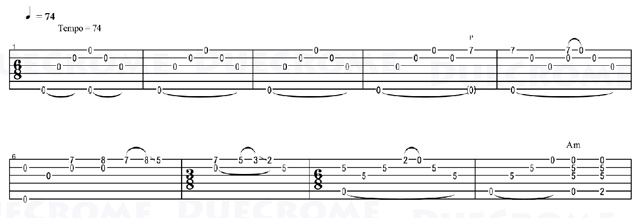
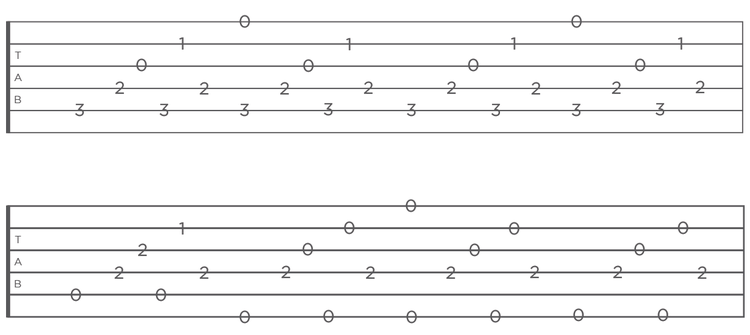
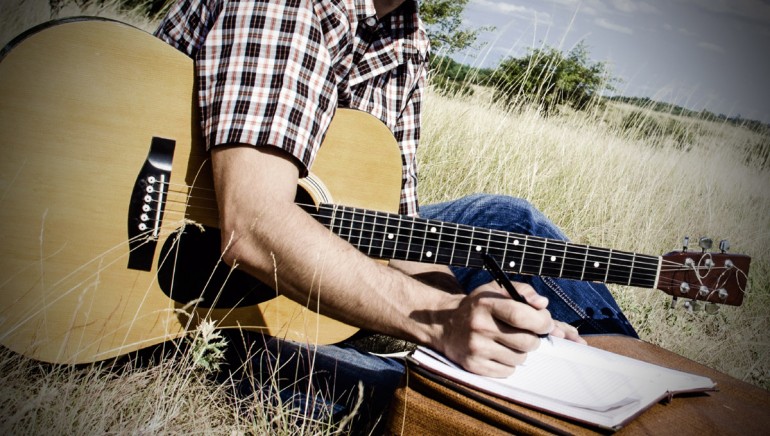
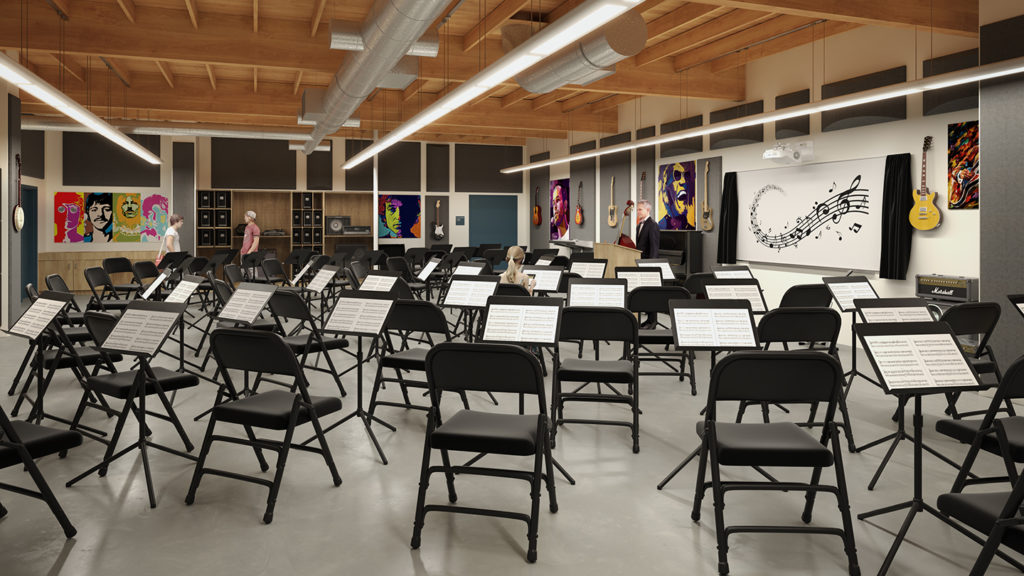
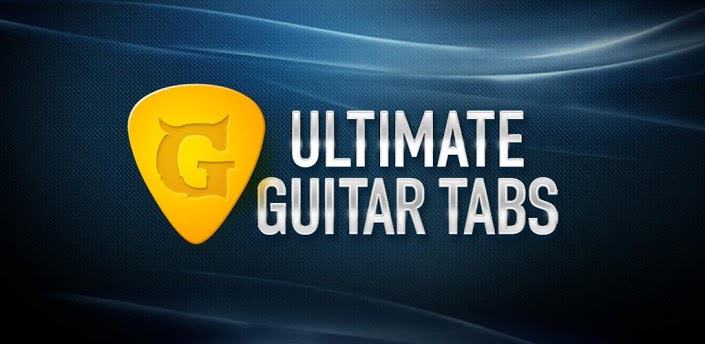
Recent Comments